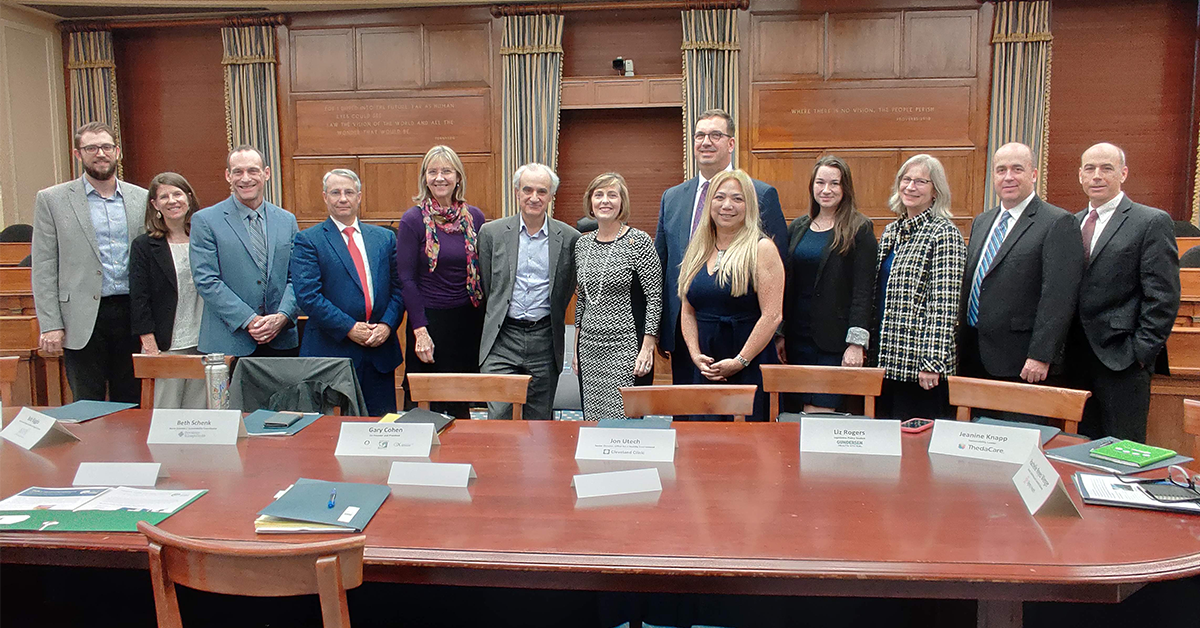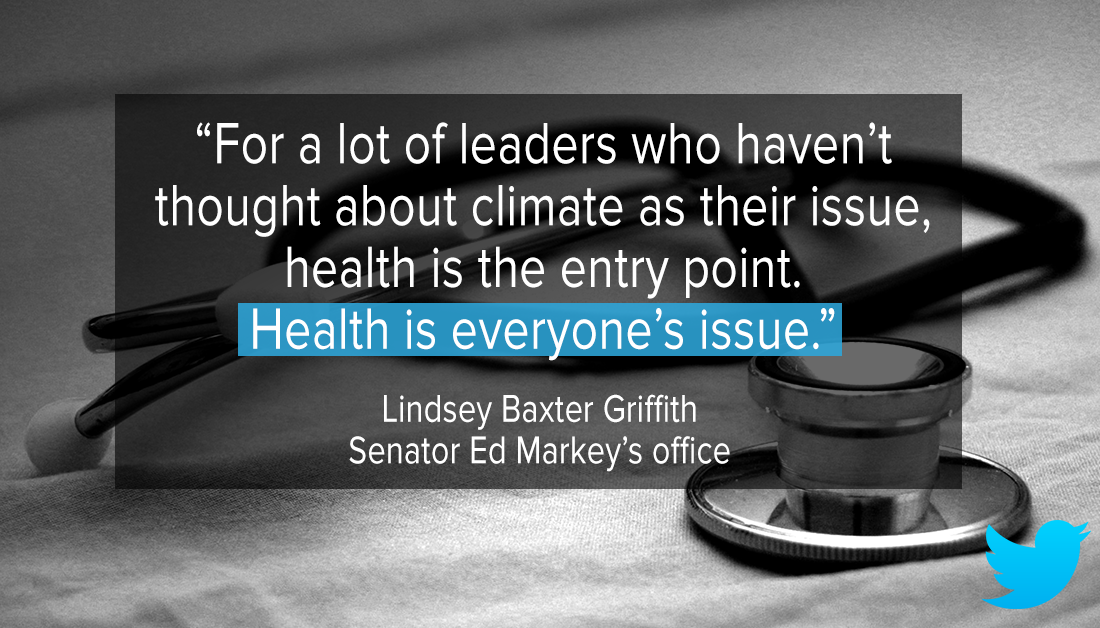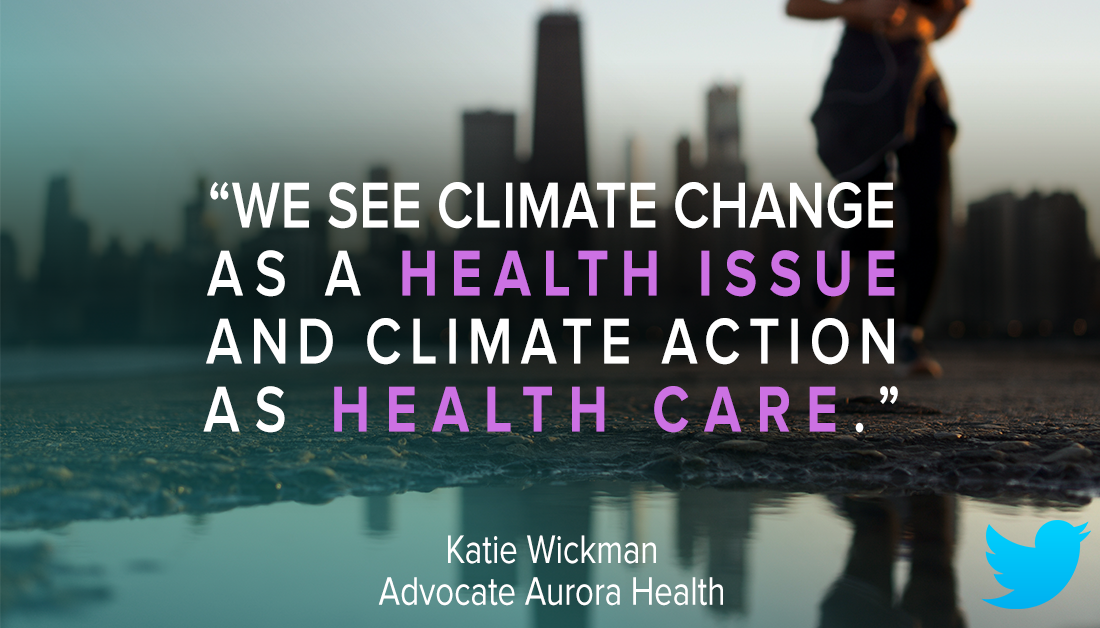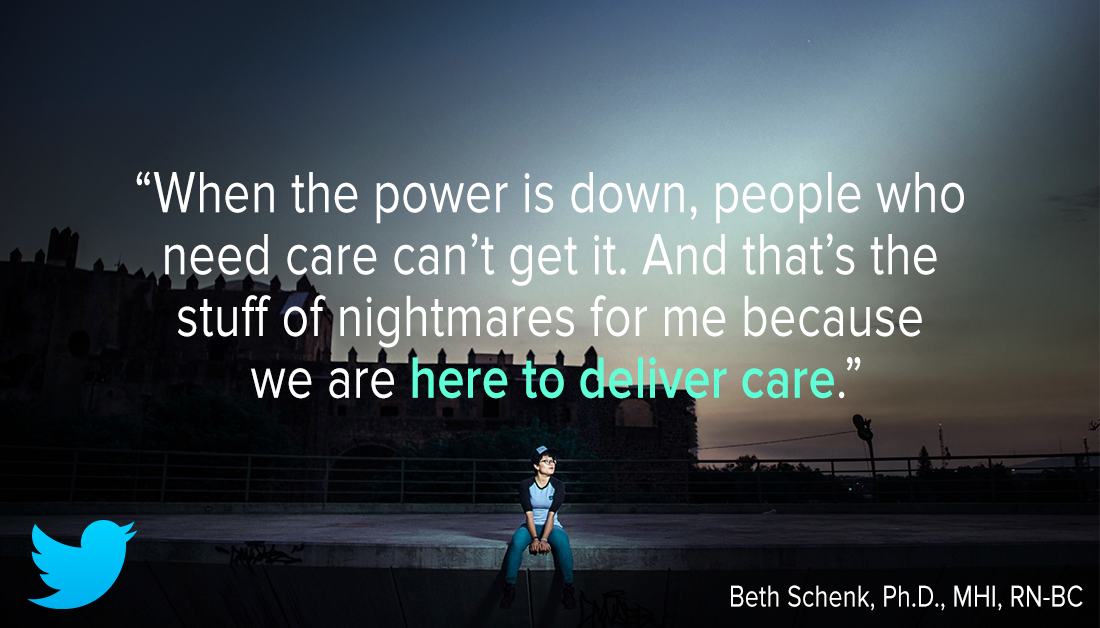Council members with Representative Kathy Castor (center), Chair of the House Select Committee on the Climate Crisis
By Sarah Spengeman
The Health Care Climate Council’s congressional education day on Oct. 24 was a success, as Climate Council members shared powerful stories of how climate change impacts their hospitals, patients, and communities and provided key recommendations for investing in healthy, resilient communities.
Along with more than 130 health and medical organizations, the Climate Council endorsed the U.S. Call to Action on Climate, Health, and Equity, a 10-point policy agenda for advancing the health and well-being of all people in the era of climate change. Climate Council members focused on two of the action agenda’s recommendations: the need to rapidly transition to 100% clean, renewable energy and to invest in hospitals that are prepared for more frequent wildfire, storm, flood, and extreme heat events.
The specific recommendations made by the Climate Council show policymakers how they can leverage the unique role hospitals play in our communities. Well-designed policy based on these recommendations can not only mitigate the negative impacts of climate change on health, but will also help support more equitable communities and reduce the cost of health care delivery.
Climate Council members started their day with a policy briefing from Sen. Edward Markey’s lead climate and energy staff, Lindsey Griffith, who spoke about the importance of moving from education to action and the great value of advocacy from health care leaders to support climate solutions.
“We have very little time,” she said. “We need to meet people where they are, but we need to bring urgency to the problem. Health care is uniquely positioned to educate on the direct health impacts, financial impacts, and implementation.”
Climate Council members also heard from Laura Kate Bender, the American Lung Association’s Healthy Air national assistant vice president. Bender shared that as awareness of the health impacts of climate change grows on Capitol Hill, there is no better time to help members of Congress understand the kinds of policies most needed to mitigate its impact.
Ryan Martel, Ceres federal policy program director, talked about the ways members of Congress are working in a bipartisan manner to develop climate solutions that invest in clean energy and put a price on carbon pollution.
After the briefing and preparing for their visits, Climate Council members spent the morning and early afternoon meeting with senators who represent Climate Council hospitals and staff from key congressional committees. They had conversations with staff from Sens. Murkowski, Rubio, and Schumer’s offices as well as staff from the Senate Democrats Special Committee on the Climate Crisis, the Senate Bipartisan Climate Solutions Caucus, and the House Energy and Commerce Committee. Climate Council members explained how addressing climate change is intricately linked to their healing mission.
“If we’re sending patients home to unhealthy air or to a place where they’re experiencing climate impacts, it’s not helping us live out our mission of helping people live healthy lives. We see climate change as a health issue and climate action as health care,” said Advocate Aurora Health’s sustainability manager Katie Wickman, MS, RN, CIC.
Climate Council members were encouraged by their conversations, and congressional staff were enthusiastic about making the connection between clean energy solutions, benefits to health, and opportunities for reducing the cost of care through greater efficiency.
The Climate Council met for an hour with Select Committee on the Climate Crisis members Chair Kathy Castor and Rep. Suzanne Bonamici. The committee is charged with creating a set of recommended policies that achieve ambitious emissions reductions and build resilience. Both congresswomen were keenly interested in hearing how health care has been affected by climate change and listened intently as Climate Council members shared their stories and experiences.
“When the power is down, people who need care can’t get it,” shared Beth Schenk, PhD, MHI, RN-BC, FAAN, nurse scientist and sustainability coordinator at St. Patrick Hospital. “And that sets off nightmares for me because we are here to deliver care.”
Climate Council members explained how adopting clean, renewable energy and investing in efficiency can not only reduce health care costs but can save lives.
In collaboration with Health Care Without Harm, the Health Care Climate Council will be submitting their recommendations to the Select Committee as part of their Request for Information and are looking forward to helping shape the final proposed policy agenda.
You can help support the work of the Climate Council by sharing these recommendations with your members of Congress.



